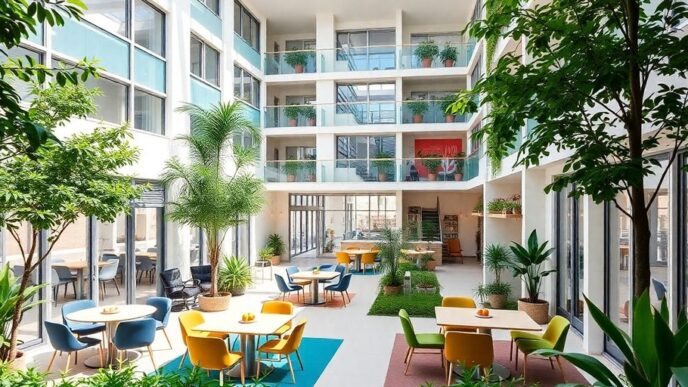Rents in Lisbon have seen a decline in the third quarter of 2024, yet tenants are increasingly willing to pay higher prices for rental properties. According to data from HousingAnywhere, the average cost of renting a furnished apartment in Lisbon fell by 10% compared to the same period last year, now averaging €1,792. Despite this drop, the spending expectations of tenants have increased by almost 17%, with an average expected rent of €1,400.
This creates a significant gap of €392 between market prices and tenant expectations, a decrease from €800 a year ago. In contrast, the city of Porto has experienced an 11.1% increase in rental prices, averaging €1,500, with tenants willing to pay an average of €1,099, reflecting a 5.7% increase in their expectations.
Key Data
- Average rent in Lisbon decreased to €1,792, a 10% drop year-on-year.
- Tenant spending intentions rose by 16.7%, averaging €1,400.
- The rent gap in Lisbon narrowed to €392 from €800 last year.
- Porto’s rental prices increased by 11.1%, averaging €1,500.
- The supply of rental properties surged by 61% in the summer, driven by tax reductions for landlords.
The Rent Gap Monitor, which analyzed over 6.3 million searches from more than 463,073 users across 28 European cities, highlights the evolving rental landscape. The report indicates that while Lisbon’s rental market is adjusting, the situation in Porto is markedly different, with rising prices and increasing tenant expectations.
Rental Market Dynamics
The increase in rental property availability is attributed to several factors:
- A 61% rise in rental property listings compared to the previous year.
- Tax reductions for landlords, encouraging more properties to enter the rental market.
- A notable shift in tenant preferences towards renting rooms instead of entire apartments, as a more affordable housing option.
Cities like Viseu have seen an impressive 110% increase in rental listings, while Lisbon’s growth stands at 65%. This trend reflects a broader adjustment in the rental market, where affordability remains a significant concern for many.
Challenges Ahead
Despite the increase in available rental properties, challenges persist:
- The government’s decision to freeze rent increases on older contracts limits the availability of new rental properties, keeping prices high for new leases.
- Many potential buyers are unable to purchase homes due to rising prices and stringent mortgage requirements, making renting the only viable option for many.
As the rental market continues to evolve, the disparity between what tenants are willing to pay and actual market prices remains a critical issue. The ongoing adjustments in supply and demand dynamics will be essential in shaping the future of housing in Lisbon and Porto.
Conclusion
The rental landscape in Lisbon is undergoing significant changes, with a notable drop in rents juxtaposed against rising tenant expectations. As the market adjusts, the focus will be on balancing affordability with the need for landlords to maintain viable rental incomes. The coming months will be crucial in determining how these trends will impact the housing market in Portugal.












